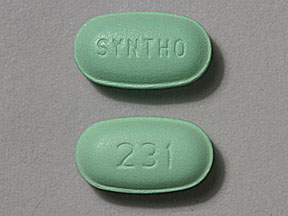Syntest DS and Alcohol/Food Interactions
There are 4 alcohol/food/lifestyle interactions with Syntest DS (esterified estrogens / methyltestosterone).
Esterified Estrogens Food/Lifestyle
Minor Food Interaction
Information for this minor interaction is available on the professional version.
Switch to professional interaction data
Methyltestosterone High Cholesterol (Hyperlipoproteinemia, Hypertriglyceridemia, Sitosterolemia)
Major Potential Hazard, Moderate plausibility
androgens - hyperlipoproteinemia
Androgenic anabolic steroids may adversely affect serum lipids, including lowering HDL and elevating LDL levels. These changes can be marked, particularly with the 17-alpha-alkyl derivatives (i.e., fluoxymesterone, methyltestosterone, oxandrolone, oxymetholone, and stanozolol), and may significantly impact the risk of atherosclerosis and coronary artery disease. Patients with preexisting hyperlipoproteinemia may require closer monitoring during therapy with androgenic agents, and adjustments made accordingly in their lipid-lowering regimen. Androgen therapy should be administered cautiously in patients with coronary artery disease or a history of ischemic heart disease.
Esterified Estrogens High Blood Pressure (Hypertension)
Major Potential Hazard, High plausibility
estrogens - hypertension
The risk of myocardial infarction and strokes, including those associated with oral contraceptive use and some estrogen use, is increased in patients with hypertension. Moreover, estrogens (and progestogens) may elevate blood pressure and worsen the hypertension, thus compounding the risk. Clinically significant blood pressure increases have been reported during estrogen therapy, particularly in patients receiving high dosages or treated with oral contraceptive combinations having high progestational activity. These effects also increase with duration of therapy and patient age. Therapy with estrogens should be administered cautiously in patients with preexisting hypertension. Some estrogen-based therapies, such as combined hormonal contraceptives, may be contraindicated in patients with uncontrolled hypertension or hypertension with vascular disease. Patients should be monitored for changes in cardiovascular status, and their antihypertensive regimen adjusted or estrogen therapy withdrawn as necessary. In patients requiring contraception, alternative methods should be considered for those who are hypertensive, over age 35, and smoke.
Esterified Estrogens High Cholesterol (Hyperlipoproteinemia, Hypertriglyceridemia, Sitosterolemia)
Moderate Potential Hazard, Moderate plausibility
estrogens - hyperlipidemia
Estrogens may cause adverse lipid changes. Use of estrogens has been associated with elevations in triglyceride levels, particularly in women with pre-existing hypertriglyceridemia. Discontinue therapy if elevated triglycerides lead to pancreatitis. Manage hypercholesterolemia appropriately as indicated.
Switch to professional interaction data
Syntest DS drug interactions
There are 275 drug interactions with Syntest DS (esterified estrogens / methyltestosterone).
Syntest DS disease interactions
There are 24 disease interactions with Syntest DS (esterified estrogens / methyltestosterone) which include:
- carcinoma (male)
- fluid retention
- hypercalcemia in breast cancer
- hyperlipoproteinemia
- liver disease
- polycythemia
- suppression of clotting factors
- abnormal vaginal bleeding
- carcinomas (estrogenic)
- hypercalcemia in breast cancer
- hypertension
- thromboembolism/cardiovascular
- hepatic neoplasms
- diabetes
- hypercalcemia
- angioedema
- gallbladder disease
- hyperlipidemia
- hypoparathyroidism
- liver disease
- fluid retention
- glucose intolerance
- thyroid function tests
- thyroid function tests
More about Syntest DS (esterified estrogens / methyltestosterone)
- Syntest DS consumer information
- Check interactions
- Compare alternatives
- Drug images
- Side effects
- Dosage information
- During pregnancy
- Drug class: sex hormone combinations
Related treatment guides
Drug Interaction Classification
| Highly clinically significant. Avoid combinations; the risk of the interaction outweighs the benefit. | |
| Moderately clinically significant. Usually avoid combinations; use it only under special circumstances. | |
| Minimally clinically significant. Minimize risk; assess risk and consider an alternative drug, take steps to circumvent the interaction risk and/or institute a monitoring plan. | |
| No interaction information available. |
See also:
Further information
Always consult your healthcare provider to ensure the information displayed on this page applies to your personal circumstances.


